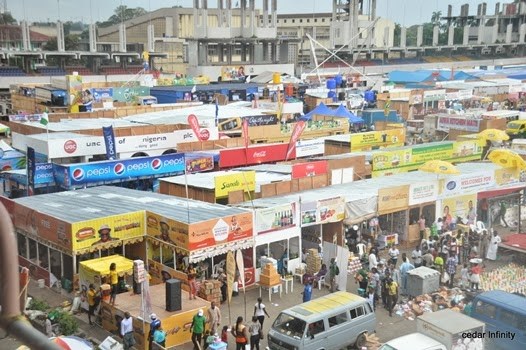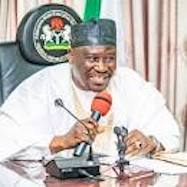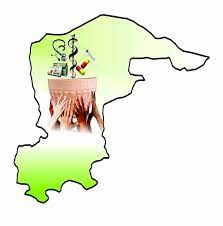Economy
Federal Workers Shun Nationwide Protests in Oyo

Scores of federal civil/public servants in Ibadan today disregarded the directive by organised labour to boycott work in protest against fuel subsidy removal and its attendant hardship on Nigerians.
The organised labour, under the aegis of Nigeria Labour Congress (NLC), Trade Union Congress (TUC), had called for nationwide protests on Wednesday.
In the Federal Secretariat Complex at Ikolaba in Ibadan, workers were seen at their respective offices without any hindrance or harassment from any quarter.
Although the gate of the secretariat was closed, security personnel on duty opened it only for the workers to get to their offices.
Chief Security Officer (CSO) of the complex, Sunday Dipeolu, said that his job was to protect the complex, the workers and everyone entering the building for lawful businesses.
Dipeolu said that 42 federal ministries, agencies and parastatals were occupying the complex and that he was bound to secure them.
According to him, he has no power to drive out any worker who decides to come to work.
The CSO said that the Commissioner of Police in the state, Hamzat Adebola, had earlier visited the secretariat to assess the situation of things.
Some of the workers said that they were federal workers and that it was only the federal government that could direct them to stay away from work or join the protest.
Another worker, who preferred to be anonymous, said that the organised labour was merely an association of workers and not his employer.
Head of Building Department, Federal Ministry of Works and Housing, Solomon Adedire, said that no directive emanated from his employer that he should join the protest or stay away from work.
Adedire, who said that he and some of his colleagues were at their duty posts, however, noted that some decided to stay away from work probably due to fear of the unknown.
Meanwhile, state workers continued with their protest at the entrance of the state secretariat, Agodi, Ibadan yesterday.
The workers had commenced the protest on Monday over issues relating to payment of salary deductions, leave bonuses and upward review of pension allowances.
Security personnel, comprising the Nigeria Police Force and Nigeria Security and Civil Defence Corps (NSCDC), were stationed in strategic locations within Ibadan metropolis to maintain law and order.
Such locations included: Mokola roundabout, Agodi-Gate, Dugbe junction, NLC secretariat, government secretariat and University of Ibadan main entrance, among others.
Although both private and commercial vehicles were observed plying the roads without any disturbance, commercial banks within the city were under lock and key.
In addition, workers were, however, denied entry into the state High Court, Magistrates’ Court, Family Court and the Election Petition Tribunal, as their gates were locked, with security presence.
Economy
Organise Informal Sector, Tax Prosperity Not Poverty, Adedeji Tasks Officials

The Chairman, Joint Tax Board (JTB), Dr Zacch Adedeji, has urged officials of the board to organise traders and artisans into a formal body before capturing them in the tax net.
Adedeji said that this was in line with the agenda of President Bola Tinubu not to tax poverty but prosperity.
The chairman stated this at the 157th Joint Tax Board meeting held in Ibadan, on Monday.
The theme of the meeting “Taxation of the Informal Sector: Potentials and Challenges”.
Speaking on the theme of the event, Adedeji stressed the need to evolve a system that would make the informal sector formal before it could be taxed.
Adedeji, who also doubles as the Chairman, Federal Inland Revenue Service, (FIRS), said “What I would not expect from the JTB meeting is to define a system that would tax the informal sector.
“The only thing is to formalize the informal sector, not to design a system on how to collect tax from market men and women.
“As revenue administrator, our goal is to organise the informal sector so that it can fit into existing tax law.”
Citing a report of the National Bureau of Statistics (NBS) in the first quarter of 2023, the chairman said that the nation’s unemployment index was attributable to recognised informal work.
Adedeji stated that workers in that sector accounted for 92.6 per cent of the employed population in the country as at Q1 2023.
“JTB IS transiting to the Joint Revenue Board with expanded scope and functions.
“We are hopeful that by the time we hold the next meeting of the Board, the Joint Revenue Board (Establishment) Bill would have been signed into Law by the President.
“The meetings of the board provide the platform for members to engage and brainstorm on contemporary and emerging issues on tax, and taxation,” he said.
In his address, Gov. Seyi Makinde of Oyo State, said the theme of the meeting was apt and timely, stressing that it coincides with the agenda of the state to improve on its internally generated revenue.
According to him, the meeting should find the best way forward in addressing the issue of the informal sector and balance the identified challenges.
“Nigeria is rich in natural resources, but it is a poor country because economic prosperity does not base on natural resources,”
Makinde also said that knowledge, skill and intensive production were required for economic prosperity, not just the availability of natural resources.
He stressed the need to move from expecting Federal Allocations to generating income internally.
“We are actively ensuring that people are productive and moving the revenue base forward,” Makinde said.
The governor said that tax drive should be done by simplifying tax processes, incentives for compliance like access to empowerment schemes and loans.
He urged JTB to deepen partnership and innovation in using data on tax to track and administer it.
Earlier, the Executive Chairman, Oyo State Board of Internal Revenue, Mr Olufemi Awakan, said the meeting was to address tax-related matters, evolve a workable, effective and
efficient tax system across the states and at the Federal level.
He urged participants to find amicable solutions to challenges of tax jurisdiction, among others.
Tax administrators from all the 36 states of the federation, who are members of JTB, were in attendance. (NAN)
Economy
Customs Zone D Seizes Contraband Worth N110m

The Nigeria Customs Service (NCS), Federal Operation Unit (FOU), Zone D, has seized smuggled goods worth over N110 million between April 20 till date.
The Comptroller of Customs, Abubakar Umar, said this at a news conference on Tuesday in Bauchi.
He listed the seized items to include 11,200 litres of petrol; 192 bales of second hand clothing, 140 cartons of pasta, 125 pairs of jungle boots, 47 bags of foreign parboiled rice and 9.
40 kilogramme of pangolin scales.Umar said the items were seized through increased patrols, intelligence-led operations, and strengthened inter-agency collaboration.
The comptroller said the pangolin scales would be handed over to the National Environmental Standards and Regulations Enforcement Agency (NESREA) for appropriate action, while the seized petrol would be auctioned, and the proceeds remitted to the federation account.
He attributed the decrease in smuggling activities of wildlife, narcotics, and fuel to the dedication and professionalism displayed by the personnel in line with Sections 226 and 245 of the NCS Act 2023.
The comptroller enjoined traders to remain law abiding, adding the service would scale up sensitisation activities to combat smuggling.
“We remain resolute in securing the borders and contributing to Nigeria’s economic development,” he said.
The FOU Zone D comprises Adamawa; Taraba, Bauchi, Gombe, Borno, Yobe, Plateau, Benue and Nasarawa. (NAN)
Economy
Trade Tensions: Global Economy Stands at Fragile Turning Point -UN

The UN Department of Economic and Social Affairs (UN DESA) has said that the global economy stands at a fragile turning point amid escalating trade tensions and growing policy uncertainties.UN DESA, in a report published on Thursday, stated that tariff-driven price pressures were adding to inflation risks, leaving trade-dependent economies particularly vulnerable.
It stated that higher tariffs and shifting trade policies were threatening to disrupt global supply chains, raise production costs, and delay key investment decisions – all of this weakening the prospects for global growth. The economic slowdown is widespread, affecting both developed and developing economies around the world, according to the report.For instance, in the United States, growth is projected to slow “significantly”, as higher tariffs and policy uncertainty are expected to weigh on private investment and consumer spending.Several major developing economies, including Brazil and Mexico, are also experiencing downward revisions in their growth forecasts.China’s economy is expected to grow by 4.6 per cent this year, down from 5.0 per cent in 2024. This slowdown reflects a weakening in consumer confidence, disruptions in export-driven manufacturing, and ongoing challenges in the Chinese property sector.By early 2025, inflation had exceeded pre-pandemic averages in two-thirds of countries worldwide, with more than 20 developing economies experiencing double-digit inflation rates.This comes despite global headline inflation easing between 2023 and 2024.Food inflation remained especially high in Africa, and in South and Western Asia, averaging above six per cent. This continues to hit low-income households hardest.Rising trade barriers and climate-related shocks are further driving up inflation, highlighting the urgent need for coordinated policies to stabilise prices and protect the most vulnerable populations.“The tariff shock risks hitting vulnerable developing countries hard,” Li Junhua, UN Under-Secretary-General for Economic and Social Affairs, said in a statement.As central banks try to balance the need to control inflation with efforts to support weakening economies, many governments – particularly in developing countries – have limited fiscal space. This makes it more difficult for them to respond effectively to the economic slowdown.For many developing countries, this challenging economic outlook threatens efforts to create jobs, reduce poverty, and tackle inequality, the report underlines. (NAN)

















